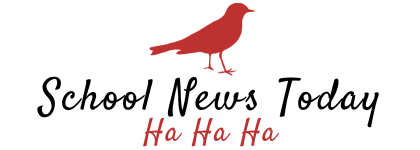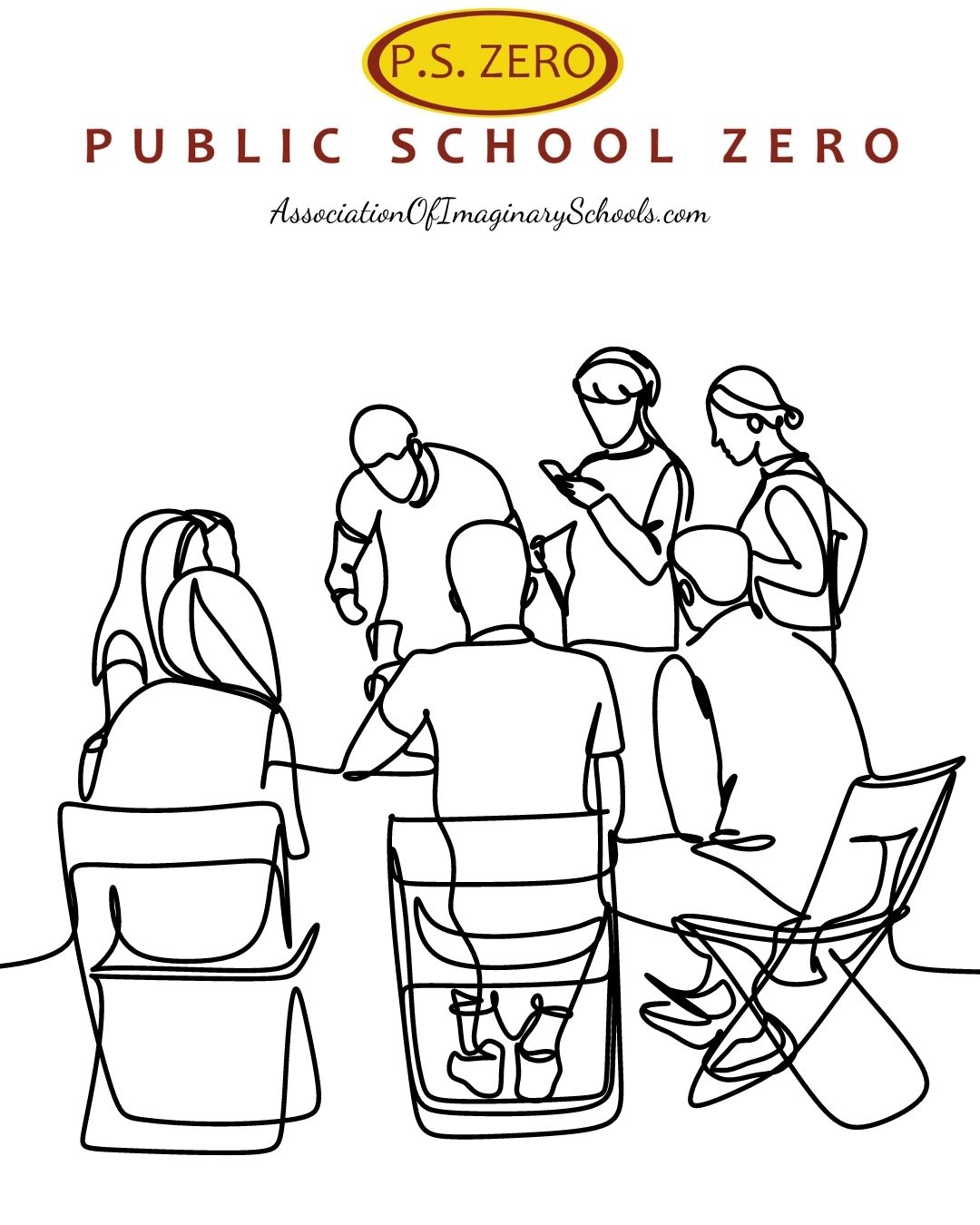The Group Game
Project-Based Learning (PBL) is popular with education gurus but often dreaded by students. In response to a community survey that showed widespread dissatisfaction with last year’s group work mandate, which required that all academic assignments were communal projects, Public School Zero is launching a new initiative across grades and subject matters, called The Group Game. The Group Game allows students to rotate among the well-known and incredibly annoying roles that tend to develop in PBL from slacker to martyr to psychopathic egomaniac and control those dynamics instead of being controlled by them.
About The Game
The Group Game is the brainchild of Public School Zero science teacher, Mr. Durden. Mr. Durden recently explained to the editor of the School Newsletter that he hated PBL as a kid. He was The Drudge, doing all of the work for none of the credit. In his senior year of high school, Mr. Durden worked for four months assembling an award-winning working model of the Challenger while the Slacker and his crush bailed on the project and hooked up behind the Science Building. The Football Star then took all the glory for the Challenger project at the State Fair. Mr. Durden is determined to change the group dynamics of group work, and is excited to see his method replicated throughout the school. He told the Newsletter that one part of the game he feels most strongly about is the role of The Friend. Despite his negative experiences with PBL, Mr. Durden told the Newsletter that he had met his best friend on the Challenger project. Although the friend had mono and could not participate in any of the classroom activities, he and Mr. Durden had bonded and became lifelong friends, serving as Best Man at each other’s weddings.
How To Play The Group Game
The Four Roles For The Group Game
- The Drudge
- The Credit Hog
- The Slacker
- The Friend
On each academic project, students are assigned one of the roles until, by the end of the term, they have played all the roles. Students perform their usual assigned work for the class, whether it is lab work, research or math, but must act in the assigned role as they work. At the end of the term, instead of assigning groups a collective grade, which can be a source of resentment in PBL, each student receives a final grade based on the total of their individual grades in each role.
Definition of Terms
At the start of term, the class workshops the definition of each role and comes up with a list of requirements for each actor. For example, the class might stipulate that The Slacker not only fails to complete their work but also “ghosts” the group after changing the PowerPoint password. Sometimes the Credit Hog might be cast as a showboater who makes a big splash at the public presentation, other times the Credit Hog might work behind the scenes representing themselves as the hero to the teacher in private. In some cases, The Drudge might perform all the work for the assignment without consulting the other team members, in other scenarios The Drudge is also tasked with supervising, tracking down and offering group therapy to the other teammates in an effort to get them to participate. The most complex role is The Friend. While in real life The Friend may well play another of the four roles as well, in this assignment the only job of The Friend is to make a special connection with another student in the group. Students at different grade levels tend to have varying ideas of what gestures of friendship are important, from providing a basement rec room complete with Flaming Hot Cheetos, to emo professions of undying solidarity on every platform. But in this assignment, whatever symbolic gestures The Friend must make, the most important task is to reach out and bond with another kid.
What The Game Reveals About Life
Brainstorming about Group Roles can be tricky as they bring up underlying classroom issues. Students are usually quick to point out that in real life the roles of The Drudge are more often played out by females, while the roles of The Slacker and The Credit Hog are usually taken by males. Mr. Durden has found that the most common role played by trans kids is The Friend and that gay kids are no more likely to play any one role than hetero kids. In Mr. Durden’s experience, students rarely address LGBTQ issues in the initial discussion, instead mentioning them in the anonymous written feedback at the end of term. Another issue that is laid bare in anonymous feedback is that in real life white students often monopolize power in PBL and place minority students at the periphery. Mr. Durden has found that when group roles are divided up in real life, outside the game, students of color are often explicitly denied any role at all. The process of assigning roles in The Group Game forces the white majority to power share within the exercise, a process the white students can be slow to recognize. Mr. Durden is working on another game that deals with the group dynamics created by the game itself, which he will share with students next term.
Monetizing The Game
A recent article in the town newspaper quoted the Principal as saying that he was optimistic about the prospects of The Group Game and hopeful that “This bold new initiative of Public School Zero will soon be replicated at schools across the state, making us the leader in innovative project-based learning approaches.” The Principal has begun the process of trademarking The Group Game and hopes to monetize the Game through licensing and mail-order teaching materials. The Principal will be presenting his bold vision for The Group Game at the Association of Imaginary Schools conference this January and encourages administrators at other schools to sign up for his subscription-only seminar Round and Round In the Circle Game.
Also Read:The Email Game

